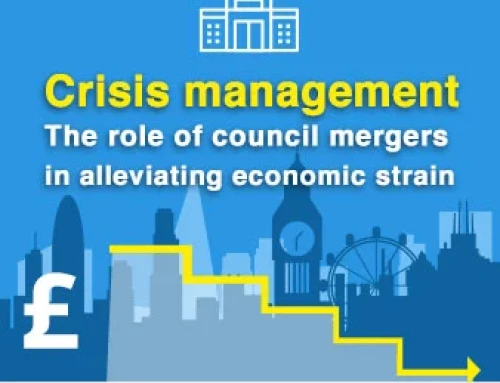From Harvey to Parliament: How to Blow the Whistle?
High time to get serious about the whistle blowing procedure!
An individual spends a significant part of his day or rather life at his workplace. In our last post, we mentioned the causes and impact of the UK’s downgraded productivity levels. There should be a feeling of safety, contentment, and happiness when one’s at work. Then only, it is possible for an employee to deliver his best. An important, yet unnoticed, factor affecting work environment is the whistle blowing procedure.
Whistleblowers are the workers who disclose the wrongdoing at their workplace. They report something that is illegal or not in the public interest. Whistleblowing doesn’t include personal complaints or grievances. Any employee who feels that his/her organisation is not complying with the law, their acts are endangering someone’s health and safety, financial frauds or they are covering up something wrong, can blow the whistle and raise an alarm to stop such activities. Whistle blowing law is located in the Employment Rights Act 1996 (as amended by the Public Interest Disclosure Act 1998).
The fear of dismissal, humiliation or no action on the complaint makes many whistle blowers not to spell the trouble. Like many women raised their voices after the recent revelation of allegations against Harvey Weinstein. Since years, they had remained silent due to the fear of losing their careers, reputation and being harmed by the power of the accused. As an aftereffect of this incident, the world witnessed the ‘#MeToo’ hashtag, where people, women, in particular, came forward to express the misconduct happened due to professional reasons. Later, many influential people came under a scanner and it followed severe actions against them.
In a PCAW research, 1,000 employees shared their whistleblowing experiences. They had raised a total of 1,514 cases. Of those, 82% cases were internal, 15% external, and 3% to a union. 44% of them took a step to raise a concern only once. And, 39% cared to go for the second time. Shockingly, 60% of the whistle blowers did not report any response from the management. Further, more than half of them feared dismissal as a consequence of them blowing the whistle.
The figures give a reason to worry. The organisations and the government need to address the employee protection. Enlisting three ways to streamline the whistle blowing procedure-
Training the Line Managers
These are the people managing all other people. The line managers are responsible for the operations and handling the lower-level teams. They are the ones having direct contact with the employees. For the smaller firms with no HR (human resources) specialist, it is the line managers who need to ensure the employees’ well-being alongwith doing company’s work. And, for the larger firms with a dedicated HR team, due to the lack of communication and demarcation of the actual work, employee engagement goes unnoticed.
It goes in company’s favour to train their line managers with best practices. In turn, they will be able to train the other employees when it comes to doing quality work, being productive and disclosing the wrongdoings. The line managers play a prominent role in establishing standard whistle blowing procedure. They can encourage them to blow the whistle assuring them of full protection. Also, skilled line managers can solve the whistle blowing issues at their own level before it grows to a bigger level. This may prevent any harm to the organisation or the public.
A successful line manager should aim at having a team that bonds well. Besides the HR staff, the line managers should pay attention to the employee welfare.
A Culture of Ethos
At the organisational level, the first step is to hire the right people. Be clear and strict about the ethos, vision and principles followed at the company. And, this should apply to one and all. From the beginning, every employee should have clarity about his rights and responsibilities. The way an employee is treated determines if he will ever report any misconduct or wrongdoing. So, a company’s culture should always reflect the support for right conduct and practices.
It is necessary to check a person’s complete background before hiring him/her. This will automatically give an assurance that your organisation consists of the people who are not only good at work but are well-behaved and hold no wrong past records. Apart from that, as the company grows, the values should deepen at each level. To encourage whistleblowers, encourage an ‘open’ culture that allows them to come forward and ‘speak-up’ without any fear of losing the job, losing reputation or any other harm.
Next, whenever an employee blows the whistle, take an immediate action. It will set an example and prevent the repetition of such incidents. It will also instigate a level of trust within the employees that they are being taken care of.
The Right Platform
Giving your employees a medium to speak is as important as it is to frame a policy and create an open culture. Many employees are afraid of reporting the issues directly. As stated by the law, it is the choice of the employee to maintain anonymity while disclosing anything illegal or wrong done by his employer, colleague or client. That’s why; an organisation must have a channel where the employees can share the things in detail.
Talking in terms of technology, a bespoke platform is a perfect solution to help the whistleblowers speak their mind. A company can make use of a whistle-blowing solution that allows the employees to raise their alarms and report it to the concerned authority. They can choose to remain anonymous or disclose their identity. The system captures information and sends to the right people for further process. The organisation can also use the collected data for analysis and ensure stricter ways to prevent future issues.
Another advantage of using such a web-based and mobile application solution is that the organisation can create a well-documented knowledge base for understanding. It will help the employees to understand what incidents come under whistle blowing activities, how they can report it and get all the updates about it. This makes the whole process easier, simpler and leaner.
Is your organisation prepared to deal with such immoral incidents?
The foremost question is – Does your organisation have a standard whistle blowing procedure? If it’s a NO, then it may be a sign of irresponsibility towards your employees. Before it goes public, try to correct it at an internal level. To create a safe and transparent working environment, whistle-blowers’ protection is vital. Feel free to connect with our specialists to frame and implement the whistle blowing solution and earn the trust of your employees!





